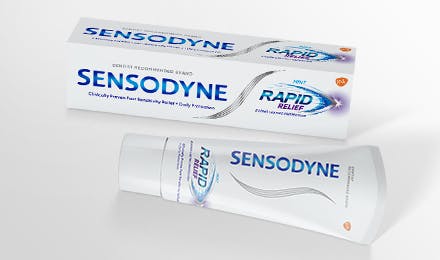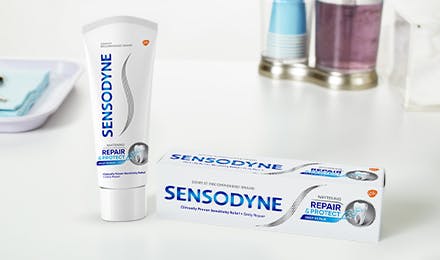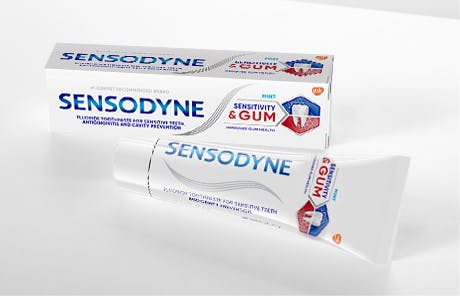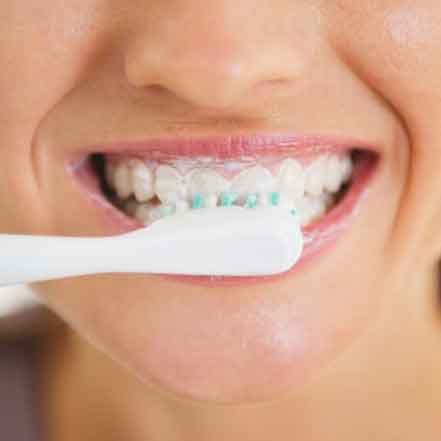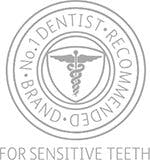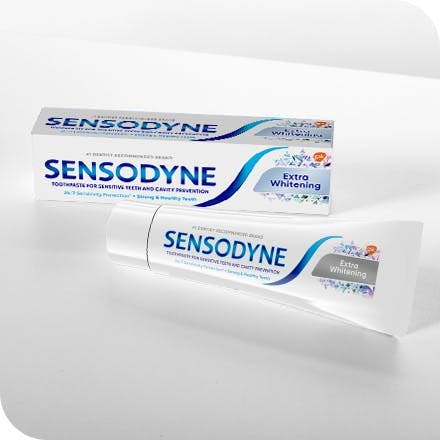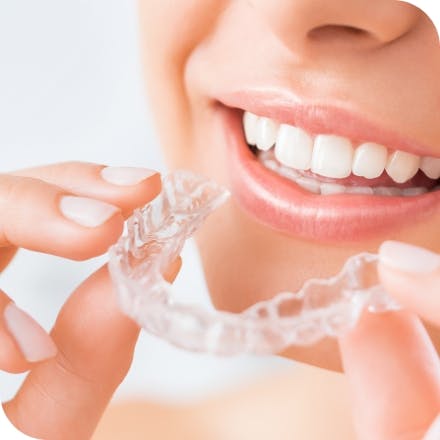Fluoride Guide: Is Fluoride Good for your Teeth?
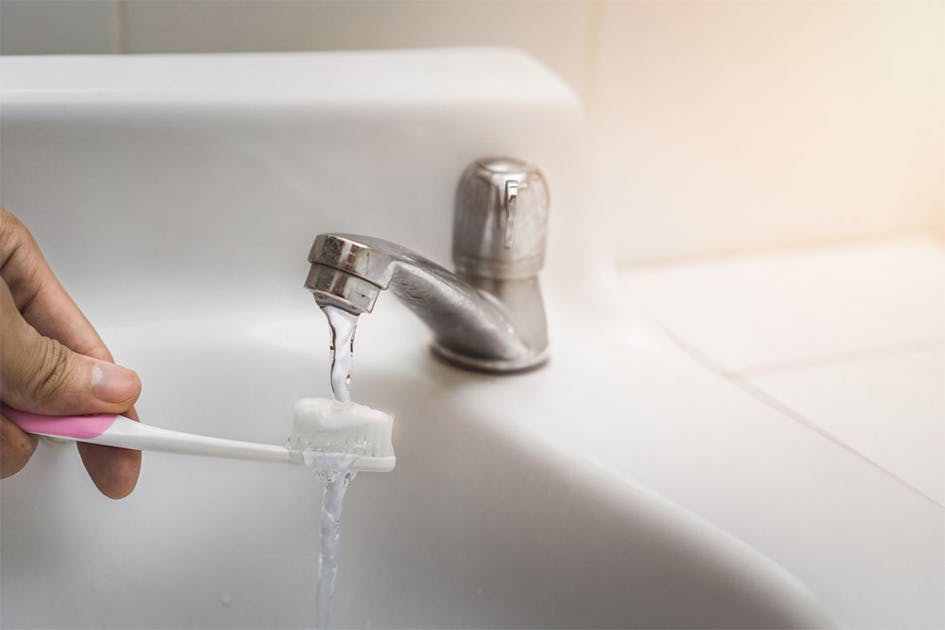
The word “fluoride” is used a lot when talking about caring for your teeth. There’s fluoride treatments and fluoride toothpaste, and don’t forget about fluoride in your drinking water. But what is fluoride, and what does it do for teeth?
What Is Fluoride and What Does it Do for Teeth?
Fluoride is a naturally occurring mineral that can be found in soil, groundwater, ocean water and air.1,2 It’s frequently associated with dental care thanks to its ability to strengthen the enamel, or hard outer surface, of our teeth, making it more resistant to tooth decay and cavities.1
There are four primary functions of fluoride:3
- Remineralizes the enamel of your teeth.
- Slows the process of demineralization.
- Reverses early tooth decay.
- Prevents the growth of bacteria that cause cavities.
To give an idea of how helpful fluoride is, the bacteria in your mouth feed on the sugars of what you’ve eaten and create acids that weaken your teeth’s enamel. Over time, this can lead to tooth decay if left untreated, but the general process of losing enamel is referred to as demineralization.2,3 But, when you consume foods or water that contain fluoride, the minerals that are lost from your teeth are restored in a process called remineralization.2,3 Additionally, if you receive biannual fluoride treatments from your dentist, it can actively help make your enamel resistant to acid and can reverse the early signs of tooth decay.3
For adults, fluoride can be particularly beneficial if you suffer from dry mouth or gum disease, have a history of tooth decay or are at increased risk of cavities due to crowns, braces and removable partial dentures.3
Can Fluoride Help Protect Children’s Teeth?
Infants, children and teens can benefit from fluoride as well.3 When children are very young, the fluoride from the food they eat and water they drink strengthens the enamel on their baby teeth, which can make them more resistant to cavities.2 Fluoride also helps to repair any damage caused by cavity-causing acids.2 Toothpastes and tap water containing fluoride are important, as are special fluoride treatments from their dentist.
Can Fluoride Be Bad for You?
Over 70 years of research has concluded that adding fluoride to community drinking water is safe and effective at protecting people’s teeth.2 Worldwide organizations, like the World Health Organization and the Centers for Disease Control and Prevention recognize fluoride’s cavity fighting benefits, especially for children.2
Since fluoride is naturally found in many sources, only enough is added to make it effective at preventing tooth decay.2 It’s not an amount that’s considered harmful, but extremely high doses may be considered toxic, depending on the amount ingested and the person’s weight.3 This is why supervision of younger children is important, as they may be more likely to swallow flavored toothpaste instead of spitting it out. Always consult your child's dentist or pediatrician for more information.3
The most common side effect from ingesting too much fluoride is a condition called fluorosis, which is a type of tooth discoloration.3 Children under the age of six are most affected by this, as their teeth are still developing, and their teeth may develop spots that range from light white in color to dark brown.3 It’s a reaction to drinking well water that contains naturally occurring fluoride, and your dentist can help address the issue.3
How to Protect Your Teeth with Fluoride
While making sure to drink water with fluoride is an important oral health tip that can protect your smile and prevent cavities, the ADA also recommends properly brushing with a fluoride toothpaste at least twice a day, for two minutes at a time.2
If you’re prone to cavities, you may want to talk to your dentist about adding a mouthwash that contains fluoride to help make your teeth more resistant to cavities and decay.2 Your dentist may also recommend additional, topical fluoride treatments during your cleanings in the form of foams, varnishes or gels.3
While drinking fluoridated water is the easiest way to ensure that your teeth are receiving additional protection, another option is to choose a toothpaste like Sensodyne Repair and Protect Deep Repair toothpaste. With twice-daily brushing, it can help keep your teeth and gums healthy, while also providing relief from sensitivity.
Source Citations:
- Fluoride & Dental Health. National Institute of Dental and Craniofacial Research. https://www.nidcr.nih.gov/health-info/fluoride. 5/31/23.
- How fluoride helps to prevent tooth decay. Mouth Healthy. https://www.mouthhealthy.org/en/all-topics-a-z/fluoride. Accessed 5/31/23.
- Fluoride. Cleveland Clinic. https://my.clevelandclinic.org/health/drugs/11195-fluoride. Accessed 5/31/23.


